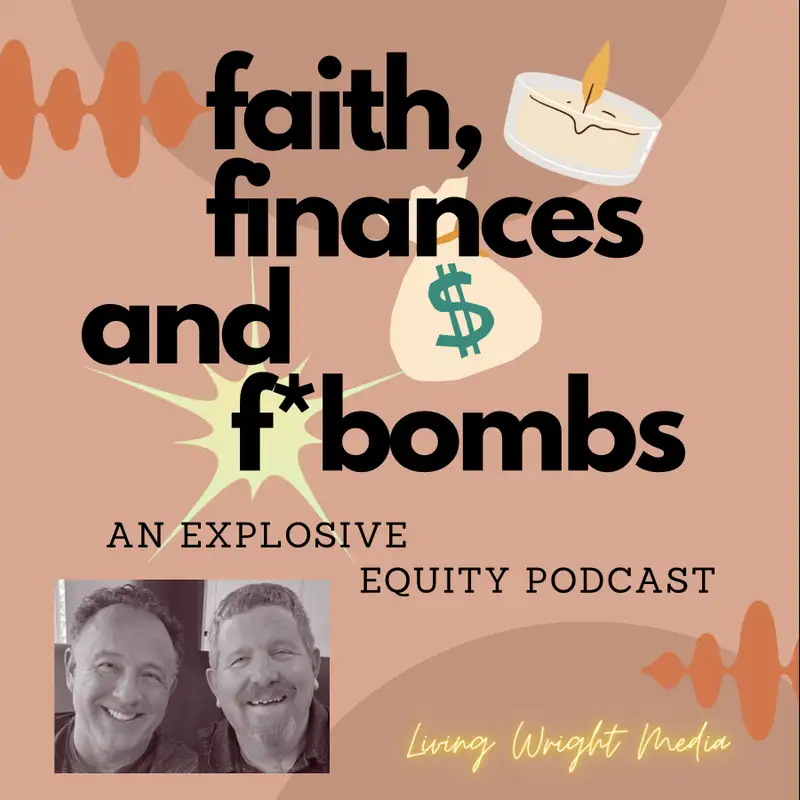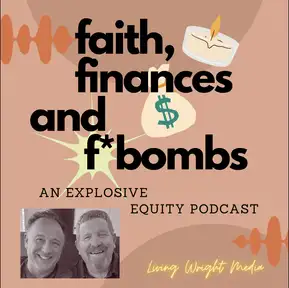Turning the Economy Around (Part 2)
Each suspicious about the integrity of their local recycling management, Hartley describes two world views, emphasizing God's economy, and Kevin details last month's view, summarizing the United States economy. This is part two, continuing their long conversation of the previous episode.
Show Notes:
Show Notes:
- Municipalities and counties pay for residential and commercial recyclables to be trucked to local and regional recycling plants for processing. Clean batches are sorted and/or compressed into bales of similar plastics, paper, aluminum or glass. The centers sell the cleaned recyclables on the open market to buyers who will process them into recycled materials like plastic pellets or post-consumer paper; these can be turned into new products. This entire process – the processing and creation of saleable recycled goods – costs money. As with any good, profitability requires selling for a higher price than it costs to make. Contaminated batches are harder to process into new products and therefore fetch a lower price on the market, if they can be sold at all. Currently, U.S. recyclables are no longer profitable, and no one wants to buy them.
- China used to buy the majority of the world’s plastics and paper for recycling. Starting Jan. 1, 2018, China banned imports of most scrap materials because shipments were too contaminated; the country no longer wanted to be the “world’s garbage dump.” As a result, the U.S. and other Western nations who had relied on China to offload their recyclables saw a “mounting crisis” of paper and plastic waste building up in ports and recycling facilities.
- Domestically, the closing of the Chinese market to U.S. recyclables bankrupted many domestic recycling programs because there was too much supply and no real demand. This left waste-management companies around the country with no market for recyclables. They’ve been forced to go back to cities and municipalities with two choices: pay a lot more to get rid of their recycling or throw it away. Reports in The New York Times and The Atlantic noted that most are choosing the latter.
- The Parable of the Wedding Feast is one of the parables of Jesus and appears in the New Testament in Luke 14:7–14. He spoke a parable to those who were invited, when he noticed how they chose the best seats, and said to them, "When you are invited by anyone to a marriage feast, don't sit in the best seat, since perhaps someone more honorable than you might be invited by him, and he who invited both of you would come and tell you, 'Make room for this person'. Then you would begin, with shame, to take the lowest place. But when you are invited, go and sit in the lowest place, so that when he who invited you comes, he may tell you, 'Friend, move up higher.' Then you will be honored in the presence of all who sit at the table with you. For everyone who exalts himself will be humbled, and whoever humbles himself will be exalted." He also said to the one who had invited him, "When you make a dinner or a supper, don't call your friends, nor your brothers, nor your kinsmen, nor rich neighbors, or perhaps they might also return the favor, and pay you back. But when you make a feast, ask the poor, the maimed, the lame, or the blind; and you will be blessed, because they don't have the resources to repay you. For you will be repaid in the resurrection of the righteous."
- The Parable of the Unjust Manager is a parable of Jesus which appears in Luke 16:1–13. In it, an accountant who is about to be fired repents of his sin, tries to "curry favor" with his master's debtors by asking the debtors to only pay what they owe his master—rather than pay him as well. Although the master has a certain grudging admiration for the manager's "shrewdness," Jesus labels the manager "dishonest:" “One who is faithful in a very little is also faithful in much, and one who is dishonest in a very little is also dishonest in much. If then you have not been faithful in the unrighteous wealth, who will entrust to you the true riches? And if you have not been faithful in that which is another's, who will give you that which is your own? No servant can serve two masters, for either he will hate the one and love the other, or he will be devoted to the one and despise the other. You cannot serve God and money.”
- The Parable of the Workers in the Vineyard is a parable of Jesus which appears in Matthew 20:1-16. Planting, maintaining and harvesting vineyards in first-century Israel was strenuous work requiring hard physical labor in the heat of summer. Often, additional laborers were required to get all the work done. The owner of this particular vineyard went to the marketplace at the first hour of the morning (6:00 a.m.) to find workers for the day. His offered wage of one denarius, a Roman’s soldier’s pay for a day, was generous indeed. The workers in the first group were more than happy to work for the generous wage. As the day progressed and more workers were hired, the specific wage was not mentioned, but the landowner promised to pay “whatever is right.” Apparently, the workers were sufficiently confident of the landowner’s character that they trusted him at his word. Altogether, four groups of workers were hired, the last group just one hour before the end of the day. When the time came for the wages to be paid, the first group of workers saw the last group being paid a denarius and were naturally thinking they would be paid more since they had worked the longest. Their anger against the landowner spilled forth when they saw they would all be paid the same, even though they got exactly what they had agreed upon when they were hired. The landowner was forced to defend his actions to the first group, even though he had dealt with them in perfect fairness according to the contract. The landowner, whose decision to pay all the workers the same was an act of mercy—not injustice—represents God, whose grace and mercy are shed abundantly upon those of His choosing.
Comment—What do you think?
X / Tweet™ to us | @FaithMoneyBomb
Leave a comment via Email | f.bombs@hartleywright.com
Connect With Us:
Hartley Facebook / Twitter / Threads
Kevin Facebook / Blog
X / Tweet™ to us | @FaithMoneyBomb
Leave a comment via Email | f.bombs@hartleywright.com
Connect With Us:
Hartley Facebook / Twitter / Threads
Kevin Facebook / Blog
Show Credits:
- Sounds by Zapsplat
- Announcer: Dr. K.J. Wright
- Podcast Theme: Catch It Music by Coma-Media from Pixabay

